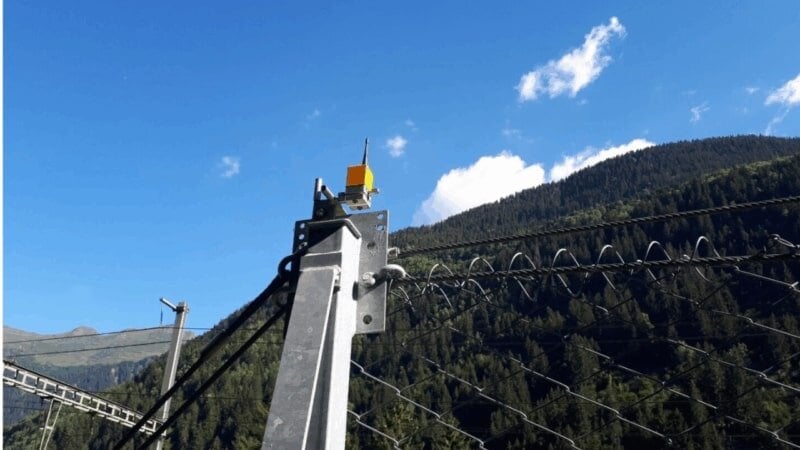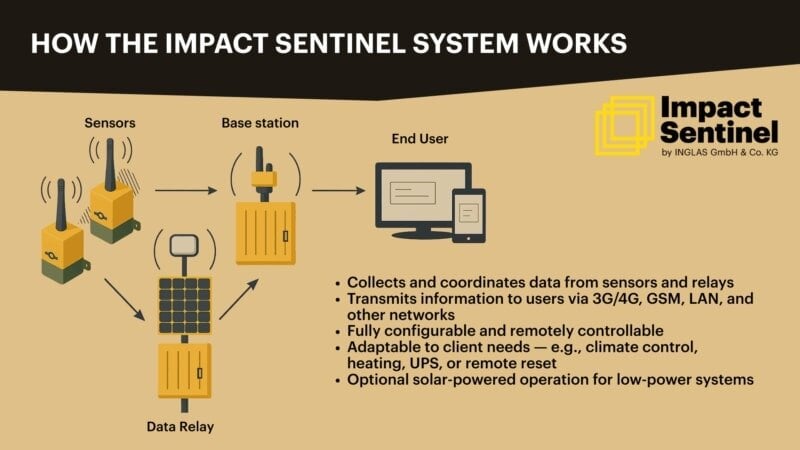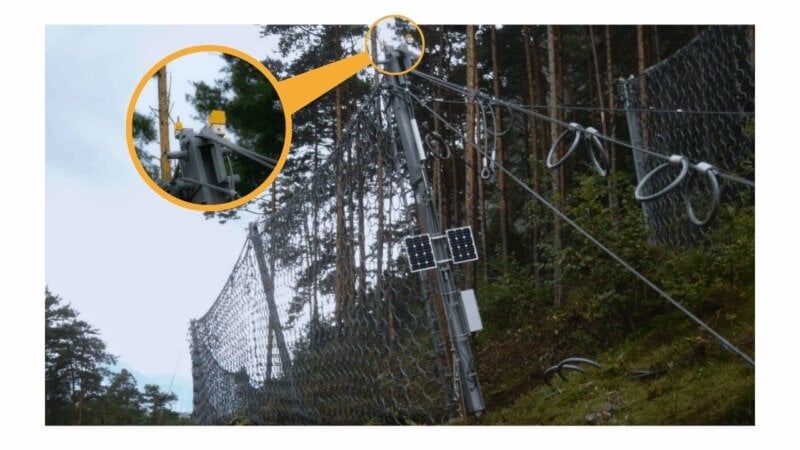Impact Sentinel: Two Decades of Real-Time Hazard
Detection Across Alpine Rail Networks.
inglas.org

© INGLAS
Long-distance rockfall monitoring systems developed by INGLAS GmbH under the Impact Sentinel platform have provided critical protection for mountain railways and transport infrastructure across Switzerland and Austria.
These systems, installed in some of the most challenging alpine environments, deliver consistent, real-time monitoring where traditional communication methods often fail.
Currently operating in multiple high-risk zones in Switzerland, including Silenen, Gurtnellen and Flüeli, the technology enables continuous surveillance of rockfall, landslide, and slope movement activity—ensuring that operators receive accurate, timely data even from the most remote sites.
Persistent Challenges in Mountain Operations
Monitoring hazards along alpine rail corridors remains a complex undertaking. Remote locations are often characterized by:
. Limited or no power infrastructure
. Weak GSM or cellular coverage across valleys and ridgelines
. Harsh weather conditions affecting data transmission
. High logistical and safety costs associated with manual inspections
These factors make reliable, autonomous monitoring essential for maintaining infrastructure safety and operational continuity year-round.
Established System Architecture

The Impact Sentinel communication network combines radio-frequency relays, GSM-R / 4G, and satellite redundancy to ensure uninterrupted data flow across long distances.
Each installation operates independently, powered by solar or lithium battery systems, allowing it to function without external power supply or constant maintenance.
All information is managed through the SAM (Sensor Actor Module) software interface, which provides operators with live updates on:
. Sensor and barrier status
. Environmental and slope movement data
. System health and signal integrity
This modular structure allows the network to expand as needed—linking multiple relay stations and covering extensive track sections or infrastructure corridors.
Field-Proven Performance
Impact Sentinel systems have maintained exceptional reliability in diverse alpine environments—from avalanche-prone ridges to deep mountain valleys.
Field data confirm successful transmission over several kilometers of rugged terrain with minimal data loss, even under snow, rain, and freezing temperatures.

© INGLAS
Automated “heartbeat” signals verify each sensor’s status in real time, ensuring that operators remain connected and aware of any developing hazard or system irregularity.
This proven performance has established the system as a trusted standard for long-distance, autonomous monitoring across the European Alps.
Applications Beyond Rail
While originally designed for mountain railway corridors, the Impact Sentinel network has also been deployed for:
. Rockfall and debris flow monitoring near hydropower facilities
. Landslide detection along access roads and tunnels
. Avalanche warning systems
. Remote industrial and infrastructure sites requiring continuous data connection
Its adaptability and robust communication architecture make it an effective, low-maintenance solution for any environment where access is difficult but continuous monitoring is critical.
Conclusion
Coming up to 20 years of field operation, the Impact Sentinel system stands as one of the most reliable long-distance monitoring solutions in Europe’s alpine regions.
By integrating autonomous power, multi-channel communication, and redundant data transmission, it ensures that even the most remote installations remain connected, monitored, and operational—24 hours a day, in all weather conditions.
This established technology continues to support rail and infrastructure operators in their mission to safeguard vital transport corridors across complex and changing landscapes.
Future-proof your hazard detection systems — consult INGLAS GmbH about scalable Impact Sentinel solutions.
www.inglas.org

